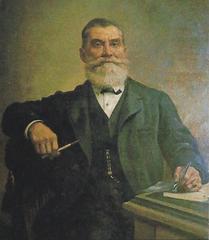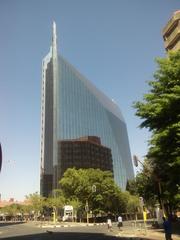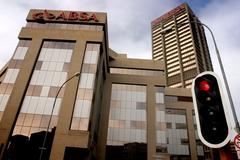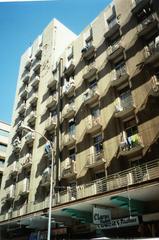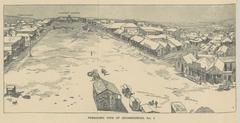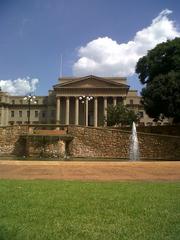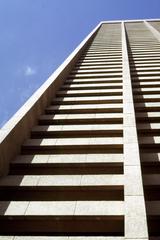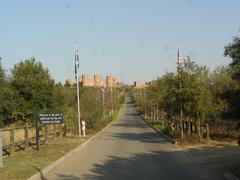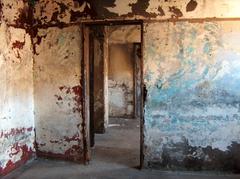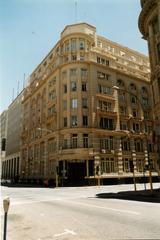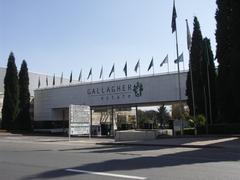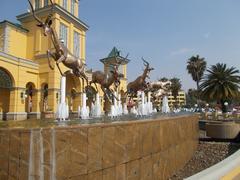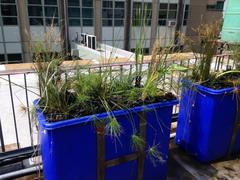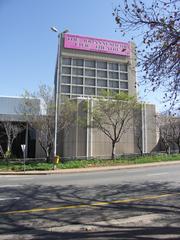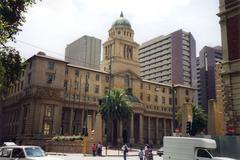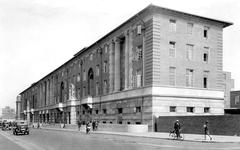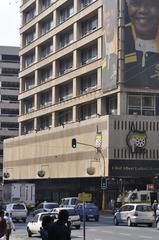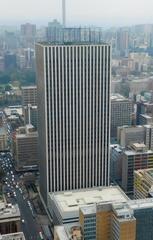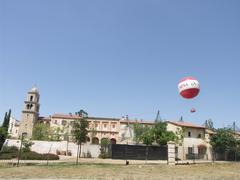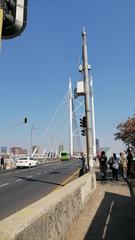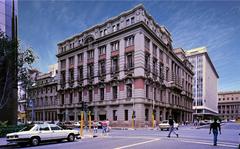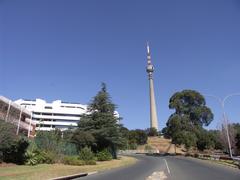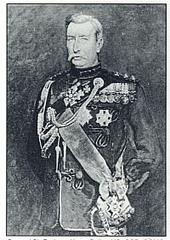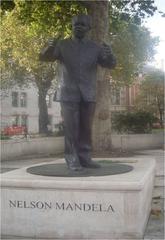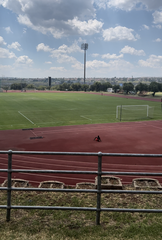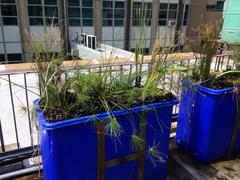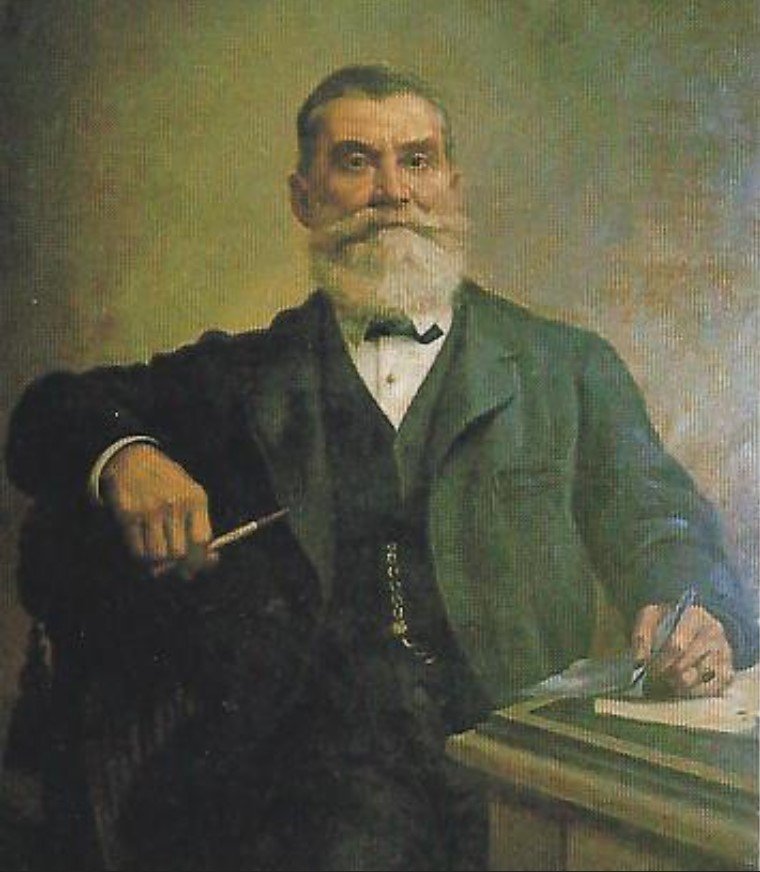
Museumafrica Visiting Hours, Tickets, and Guide to Johannesburg Historical Sites
Date: 14/06/2025
Introduction
Museumafrica, located in Johannesburg’s vibrant Newtown Cultural Precinct, is one of South Africa’s foremost cultural and historical institutions. Set within a preserved early 20th-century market hall, it offers an immersive exploration of southern Africa’s diverse heritage. Since its origins as the Africana Museum in 1935, Museumafrica has transformed into a dynamic center celebrating the continent’s cultures, histories, and contemporary artistic expressions. With a collection of over 850,000 objects—including artifacts, fine art, photographs, and manuscripts—it provides a comprehensive window into Africa’s past and present (Museumafrica website; South African tourism portal).
Museumafrica’s location in Newtown places it at the heart of Johannesburg’s cultural revival, adjacent to the Market Theatre and other landmarks. The museum’s accessible facilities, affordable tickets, and engaging exhibitions ensure an enriching experience for all visitors. This detailed guide covers the museum’s history, collections, visiting logistics, and cultural significance, equipping you with everything you need for a memorable visit.
Origins and Architectural Significance
Established in 1935 as the Africana Museum, Museumafrica’s initial aim was to collect and preserve artifacts related to colonial and settler history (southafrica.net). Over time, its mandate expanded to encompass all aspects of African heritage, reflecting the continent’s deep and complex history. Today, its collections include paintings, manuscripts, explorer maps, Cape silver, ceramics, furniture, costumes, and a vast photographic archive.
The museum is housed in a grand heritage building on Bree Street, adjacent to the Market Theatre (southafrica.net). Originally a fruit and vegetable market, the structure’s high ceilings and open halls have been preserved, symbolizing the city’s urban regeneration. Its central location and striking architecture make it a landmark in Johannesburg’s cultural landscape.
Mission and Cultural Impact
Museumafrica’s mission has evolved to foreground inclusivity and the representation of indigenous cultures, especially in the post-apartheid era. The museum now serves as a center for southern African heritage, celebrating the histories and experiences of the continent’s diverse peoples (southafrica.net). Its exhibitions provoke debate about the “African experience(s),” positioning the institution as a vital contributor to ongoing dialogues on identity, memory, and culture.
Museumafrica is also a hub for education and community engagement. Programs such as the Imbali Visual Literacy Project support local artisans, while workshops, lectures, and outreach initiatives foster a sense of ownership and participation among Johannesburg’s communities (WhereToStay).
Permanent Collections and Exhibitions
African Material Culture
The museum’s core collection features artifacts such as traditional masks, musical instruments, textiles, pottery, and beadwork from across Africa, offering a comparative perspective on cultural practices (Wikipedia). Highlights include:
- Trade tokens and indigenous currencies illustrating early commerce.
- Musical instruments representing Africa’s diverse sonic traditions.
- Carved headrests and sculptures reflecting lineage and spirituality.
Archaeology and Geology
Displays include ancient stone tools, pottery, and artifacts from early human settlements, as well as exhibits on the Witwatersrand’s geology, gold mining, and fossils (Joburg.co.za; Museum Explorer SA).
Art and Photography
- Fine Art: Traditional African pieces and works by contemporary South African artists, complemented by European art, highlight cultural exchange.
- Bensusan Museum of Photography: Showcases rare cameras, photographic equipment, and archives of Johannesburg’s visual history (Wikipedia).
Social and Political History
- “Tried for Treason”: Chronicles the Rivonia Trial and anti-apartheid activism, featuring documents, photographs, and interactive displays (Wikipedia).
- “My Culture”: Explores the traditions of South Africa’s cultural and ethnic groups through artifacts and oral histories.
- “Johannesburg Transformations”: Traces the city’s growth from a mining camp to a metropolis (Museum Explorer SA).
Temporary and Rotating Exhibitions
Museumafrica hosts temporary exhibitions that address contemporary issues and artistic innovation:
- Fashion Accounts: Examines the absence of Black South African fashion histories in museum collections (In Your Pocket).
- Structures (Worldmaking Series): Explores the relationship between humans and built environments.
Educational programs, workshops, and community events accompany these exhibitions, encouraging dialogue and critical engagement (Joburg.co.za).
Branch Museums and Special Collections
Museumafrica oversees several branch museums, each with a unique focus:
- James Hall Museum of Transport: South African transport history.
- Bensusan Photographic Museum: History of photography.
- Museum of South African Rock Art: Prehistoric rock art.
- Bernberg Museum of Costume: Historical costumes and textiles.
- Museum of Man and Science: Anthropology and natural sciences (Wikipedia).
Conservation and Research
Museumafrica employs modern conservation techniques to preserve its extensive collections. Research partnerships with academic and cultural institutions support ongoing scholarship in African history and heritage (Joburg.co.za).
Practical Visitor Information
Location and Getting There
- Address: 75 Commissioner Street (main entrance) or Bree Street, Newtown, Johannesburg
- Public Transport: Accessible via Rea Vaya Bus Rapid Transit (Newtown Junction stop nearby)
- Parking: Limited parking in Newtown; public transport is recommended (Roads & Kingdoms)
Visiting Hours
- Monday to Friday: 9:00 AM – 5:00 PM
- Saturday and Sunday: 10:00 AM – 4:00 PM
- Closed on Public Holidays
Note: Some sources cite slightly different hours (e.g., Tuesday–Sunday, 9:00–17:00). Always confirm with the official website before visiting.
Tickets and Admission
- Adults: R30
- Students/Seniors: R15
- Children under 6: Free
- Group rates: On request
- Purchase: At the entrance or online via the official site
Accessibility
- Museumafrica is wheelchair accessible, with ramps and accessible restrooms.
- Guided tours and tailored experiences are available for visitors with disabilities.
Facilities
- Restrooms and seating areas throughout the museum.
- Museum shop with locally produced arts and crafts.
- No café onsite, but nearby Market Theatre and Newtown Junction offer dining options.
Photography Policy
- Photography is generally allowed (no flash).
- Check with staff for specific restrictions in special exhibitions (Entrance Fee).
Safety
- Newtown is safe during the day but exercise standard urban precautions: keep valuables secure and be aware of your surroundings (Roads & Kingdoms).
Highlights and Must-See Exhibits
- “My Culture” Exhibition: Diverse traditions of South Africa’s ethnic groups.
- Treason Trial Display: Mandela, Sisulu, and Luthuli’s fight for freedom.
- Bensusan Museum of Photography: Vintage cameras and historical archives.
- Archaeology and African Heritage: Ancient civilizations and indigenous cultures.
- Art Collections: South African, Pre-Raphaelite, and Impressionist works.
Tips for Visiting
- Best Times: Weekdays and mornings are quieter; June–September offers mild weather (Rough Guides; TripSavvy).
- Plan ahead: Check for temporary exhibitions or special events.
- Dress comfortably: Expect to walk through spacious halls.
- Engage with staff: Guided tours enrich your visit.
- Support local artisans: Shop for crafts in the museum store.
Nearby Attractions
- Market Theatre: Renowned performing arts venue.
- Mary Fitzgerald Square: Public gathering space.
- Sci-Bono Discovery Centre: Interactive science museum.
- Workers’ Museum: Social history.
- Commissioner Street: Colonial architecture and street art (Trek Zone).
Frequently Asked Questions (FAQ)
Q: What are Museumafrica’s opening hours?
A: Monday–Friday 9:00–17:00, Saturday–Sunday 10:00–16:00. Closed public holidays.
Q: How much are tickets?
A: Adults R30; students/seniors R15; children under 6 free. Group bookings available.
Q: Is Museumafrica wheelchair accessible?
A: Yes, including ramps and accessible restrooms.
Q: Are guided tours available?
A: Yes, for groups and individuals; book in advance.
Q: Can I take photographs?
A: Yes, except where otherwise indicated.
Q: Where is Museumafrica located?
A: 75 Commissioner Street or Bree Street, Newtown, Johannesburg.
Visuals and Interactive Features
Explore high-quality images and virtual tours of Museumafrica’s collections on the official website and tourism portal. Onsite multimedia presentations enhance the visitor experience.
Conclusion
Museumafrica is a cornerstone of Johannesburg’s cultural and historical landscape, offering unparalleled insight into Africa’s multifaceted heritage. Its expansive collections, inclusive exhibitions, and commitment to education and community engagement make it essential for anyone interested in the continent’s past and present. Combine your visit with nearby attractions in the Newtown precinct for a rich cultural itinerary.
Call to Action
Plan your Museumafrica visit by checking the latest hours and ticket information. Download the Audiala app for guided audio tours, follow Museumafrica’s social media channels for updates, and explore related posts to enrich your journey through Johannesburg’s vibrant heritage.
References
- Museumafrica: Take a Journey Through Africa’s Rich Heritage, South African Tourism
- Museum Africa in Newtown Cultural Precinct Johannesburg, WhereToStay
- MuseuMAfricA, Wikipedia
- Exploring Museum Africa – A Jewel of Cultural Heritage in Newtown, Joburg.co.za
- Museumafrica Johannesburg, Trek.Zone
- Know Before You Go: Johannesburg, Roads & Kingdoms
- To See in Joburg: Weekly Exhibitions Guide, In Your Pocket
- The Best Time to Visit Johannesburg, Rough Guides
- The Best Time to Visit Johannesburg: Weather and Travel Tips, TripSavvy
